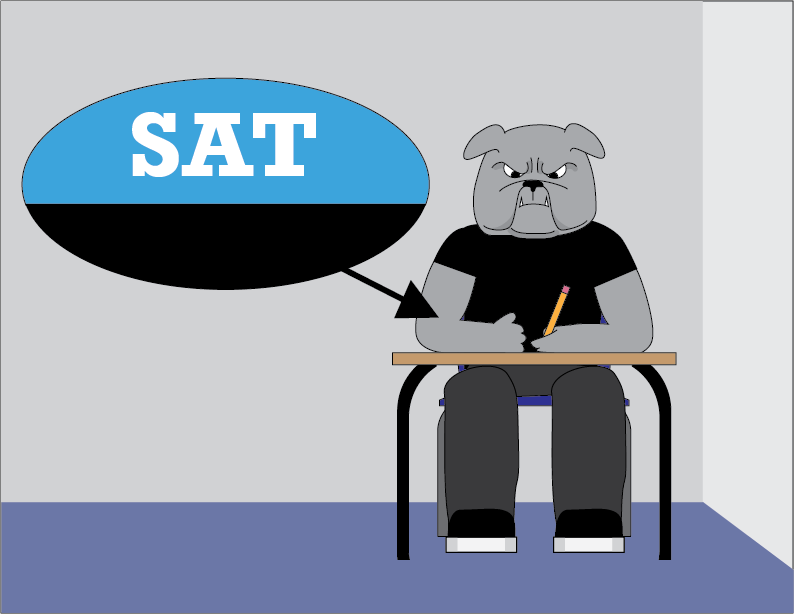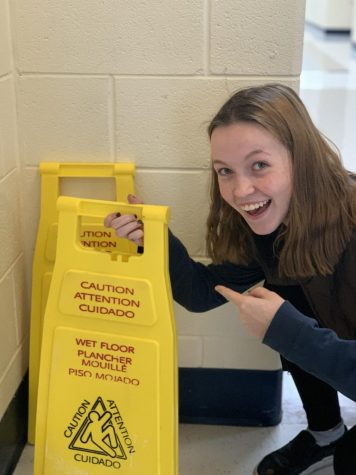CAP class prepares juniors to take PSAT/NMSQT
Media by Gemma Nishimura
October 18, 2022
On Wednesday, October 12, 2022, juniors at Riverside Brookfield High School took the optional PSAT/NMSQT exam. The NMSQT is the National Merit Scholarship Qualifying Test, and the PSAT involves problem solving, reading, and writing skills. This test qualifies students to enter scholarship programs offered through the National Merit Scholarship Corporation.
Each state requires a certain score on the PSAT to become a National Merit Commended Student. Considering the rising numbers in college tuition, the scholarship money involved would be beneficial to many. Bridget Watson, a College Admissions Prep (CAP) teacher at RB, opens up about the topic.
“Each state has a number, and students who achieve that number [on the test] could possibly be a National Merit Commended Student, which is amazing on transcripts for colleges if you score high enough,” Watson said. “Sometimes there is scholarship money involved which can be a huge perk for the person who is the recipient of that.”
For over 20 years, Watson has been tutoring for the SAT and ACT. At first, Watson began tutoring as a side business, but a job opening at RB for a CAP teacher seemed like the perfect opportunity for her.
“When I knew that a CAP position was open here at RB, it seemed like it fit exactly what I’ve been doing with my private tutoring business, so that’s one of the reasons why I ended up getting that assignment,” Watson said.
Watson used to teach the reading section of the class, but now there are only two teachers in the CAP department, so she is taking on the writing and language section as well. In her teaching, Watson usually introduces certain types of questions that can be commonly confused on the test such as the syntactic differences in the English section. Making sure that easy questions on the test are correct will boost scores and prevent losing points from them.
“These tests are kind of beatable by sharing tips, strategies, and knowledge with the students I’m dealing with now in my CAP class and have been dealing with for the past 20 years,” Waston said.
One of Watson’s biggest suggestions for the reading section of the test is that students have to start reading more. A lot of students don’t read for fun, so Watson keeps her students engaged by assigning daily reading recommendations. To stay alert and awake, making annotations is effective.
“If you just read one news article, a nonfiction piece a day, that would be helpful to your score,” Watson said. “Underlining a little bit when your reading helps dramatically.”
Similarly, math teacher Marty Sloan, who previously only taught the no calculator section of the class, is now also teaching the calculator section. The two sections are very similar but Sloan covers the subtle differences that help students.
“I approach the lessons in a similar way. It’s just different questions that it comes down to since the no calculator section asks more questions that are straight out of the math curriculum textbook type questions. And the calculator section questions are a slightly different style of questions that they have to practice because it involves more statistics than algebra,” Sloan said.
Enrollment numbers for CAP have decreased due to the pandemic since numerous colleges are going test optional. Students that would have usually signed up for CAP now believe that a test score is unnecessary for college admissions. However, Watson believes that there is still a huge benefit in taking the CAP class.
“So many schools have gone test optional for college, so kids that might have signed up for CAP might think they don’t need a test score. That is true for admission purposes. For kids who are trying to get a scholarship or merit money, they are going to need your test scores,” Watson said. “With the kids I have been tutoring I think you can see a really big jump in students’ test scores when they kind of know what tracks to avoid and what things to look for about the test.”
There are going to be some major changes with the SAT coming up since it is moving to an all digital format. The future of CAP is undetermined at this moment with the new technology testing format in place. Sloan believes that the class can still help students get into the college they want and help prepare them for the various standardized tests they will take in the future.
“CAP is really good because it gives you more exposure to the test questions and style of questions that you’re going to see on the actual SAT test,” Sloan said. “Just being exposed to all the questions is a huge advantage to those kids who are taking the test.”





charlotte Nesler • Oct 21, 2022 at 12:02 am
Great job!!